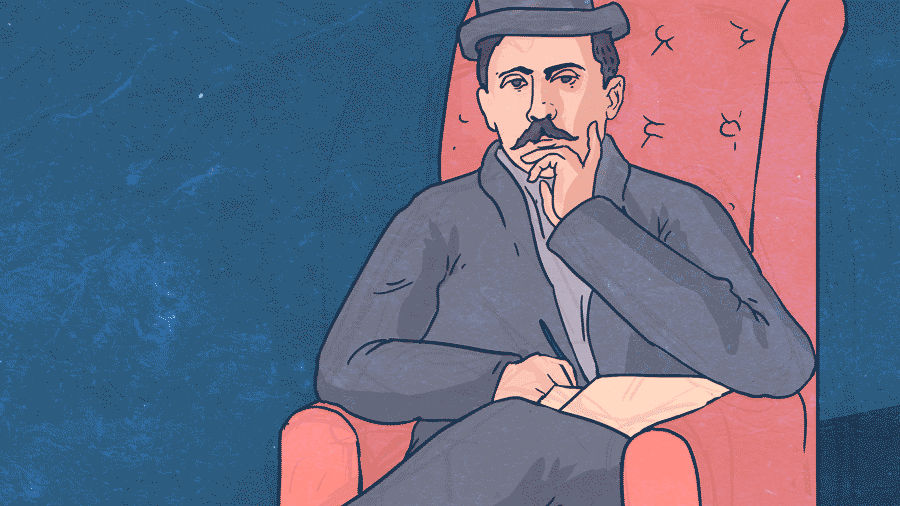When Paola Santana scored a Fulbright Scholarship to come from the Dominican Republic to the United States, she didn’t have a clear plan of what she wanted to do. She just knew she wanted to do something (and promised the committee she’d figure it out).
Since then, she’s gone on to start Matternet, a drone delivery company backed by Mercedes Benz and Boeing, and even was the youngest appointed member to the first FAA Drone Advisory Committee.
A certified lawyer, Santana also co-established the Dominican Republic’s Constitutional Court, and she went on to work on the Hyperloop and partner with NASA. She’s currently kickstarting a second company that blends the two worlds of law and tech: Social Glass. The company is going to use software to create a system that will help government organizations improve communication, both within and across different departments. Her hopes are that she creates something similar to G-suite for governments.
Subscribe to the Crunchbase Daily
In Season 3 of Proust Goes Tech, Santana tells us about her time growing up in the Dominican Republic, her issues with Google calendar, and her proposed edit for haters on Twitter.
![]()
What do you appreciate the most in your friends?
Warmth. I’m missing my friends so much from the Dominican Republic.
In San Francisco, we’re brilliant, we’re driven, but we’re mechanized. Nothing is organic.
There’s a cultural aspect to living life in that things grow organically, and drinks at 6 don’t have an end time to it. You don’t put it in a calendar invite. There’s no pre-set time period we spend together. Let’s not have an agenda, and be present—we want to give each other space to be and my friends gave me that. And my family gives me that. They detach without discarding, and give me the space to be human, very human. And I play with that.
If you were to join my girlfriend and I in the DR, we’d pick you up, we’d go to an amazing restaurant with great food—and, of course, great rum—and then there would be live music. We’d start there.
What would you otherwise be doing right now?
I’d be learning software engineering, so being able to build the things I see in my head. English is not my first language; I learned English growing up in the Dominican Republic, and I think to myself, “I should have learned coding, too.”
Right now, I feel like I need a translator all the time—whether it’s a designer or a coder. I feel that if I understood software engineering, I’d be able to talk more directly and help more people.
Your main fault?
It’s very easy to get into the nitty gritty of things, and I’m a very detail-oriented person, very picky. So I can go very deep, and I like that, but if you go very deep in things you lose perspective on the level of importance and level of impact you’re trying to solve.
Sometimes, I spend the whole day fixing something, and I think, “was that really important?”
The quality you most desire in a tweet?
Constructive, contrarian views. In Peter Thiel’s view, that means something not everybody agrees on, but is a piece of knowledge that has merit to it. It’s easy to be contrarian, but how can you see that in a constructive complaint? So no, it’s not just about posting the complaint to Twitter. Get me a positive constructive way to think about that complaint.
Your idea of misery?
Hopelessness. When you feel like there’s nothing you can do about something. You are locked, and there’s no alternatives, no choice, no other way. For me, that perspective is rock bottom.
Your chief characteristic?
Creative problem solving. Actually, that sounds packaged.
The thing about me is I always bring options to the table. I always do a step back and reframe.
What skill do you wish you possessed?
A deep understanding of macroeconomics and microeconomics. I’m always in this dichotomy: big picture, small picture. Let’s use healthcare as an example. People say, “why are we spending so much money on healthcare in a stupid way?” I want to be able to know where the statistics, the big numbers, fit in the world. When you say $3 billion was spent on healthcare, is it a big deal or not? And I want to understand how every penny was spent. I don’t just want to understand big policy; I want to understand the granularity of it.
Your most impactful book?
What defines success?
Finding wholeness and freedom in knowing that… I’m where I should be, and that I’m becoming a version of myself I couldn’t even have dreamt of before. Making space for newer and less explored paths and discovering things that don’t exist in the world yet. Success is doing “you” in all your dimensions, and that’s what I’m doing now.
When is confidence lost?
When you lose your north, your purpose, your why.
Which buzzword is exhausted?
Passion, entrepreneur.

What virtues do others have that you don’t?
Right now? Patience and speed.
What impact do you want to leave behind?
Having created a new economic model for profitable governments and unveiled the algorithm that turns them into high-performing entities. Having re-defined the concept of “public” and tested new models of governance that work beyond the current geopolitical, partisan, and discourse-driven decision-making.
What’s the biggest problem tech is failing to solve?
Governance for “the rest of us.”
Illustration Credit: Li Anne Dias

Stay up to date with recent funding rounds, acquisitions, and more with the Crunchbase Daily.


67.1K Followers